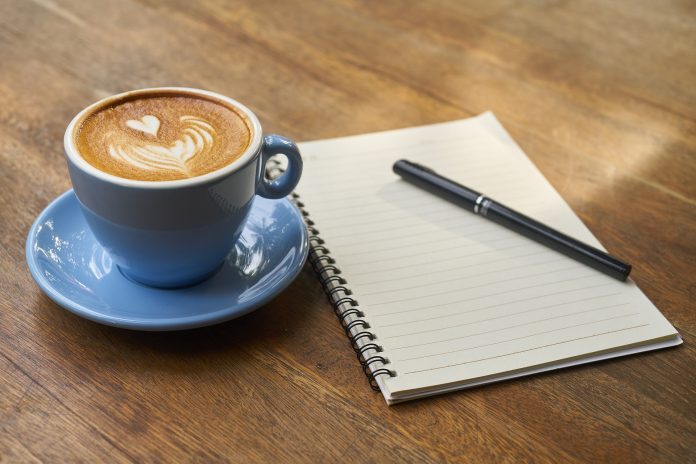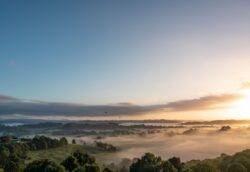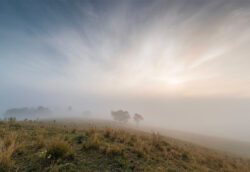I used to love coffee. I would drink six double shots of it every day. This was instant coffee, back in the day, before everyone had an espresso machine and/or enough money to pay for coffee in a café. No long, short, latte, cappuccino, flat, froth… I would make it strong, black, and drink it straight up.
When I drank coffee like this, I was working for 70-100 hours per week, depending on my work and on call commitments, and studying for a notoriously difficult exam. Drinking coffee was the only way I thought I could get through each day, as I was working too hard on not enough sleep.
Looking back, it seems I was actually ahead of my time, as in 2009 – insanely – the Queensland Government recommended that exhausted doctors should drink six cups of coffee a day to combat fatigue and keep their overstretched healthcare system functioning; perhaps a sign that their own administration was overstretched.
A day in the life of a coffee drinker
I gave up coffee for a while after I passed that exam, but when I later had two children in two years, I became sleep-deprived and exhausted again, and turned to coffee to get me through the day. I would drink a double shot to get me going in the morning, but my blood sugar would drop a half hour later, so I learned to eat a piece of cake slowly through the morning to keep it up. Then I would have lunch, which was usually some kind of sandwich or roll, and would feel sleepy from the gluten, so I would have another coffee to get me through the afternoon, with another piece of cake to stop my sugar from bottoming out. At the end of the day I was so exhausted that I needed a drink before I could even think about going home and taking care of the kids.
This was not great for my mood, my weight, my health or my relationships and I ended up separated, overweight, exhausted, not coping with life and needing alcohol and coffee to prop me up and get me through the day. With time and some help, I came to understand why; that I did not really love the props, but I needed them, to cope with how I was feeling, where I was at, and to deal with the awareness that my choices had led me to this point.
And with time, and the (excruciatingly slow) development of some love and care for myself, the habits gradually fell away.
When I let that last daily shot of coffee go, I spend three days in bed unable to move and with a cracking headache, and then I was free.
It took me a while to no longer find the smell of coffee tempting, and even now, I can sometimes be seduced by its aroma. But that seduction is a marker for me now, that I am tired and in need of some tender loving care, not a shot of coffee.
What does caffeine do for us?
Caffeine is a drug, a socially acceptable one that we imbibe in tea, coffee, caffeinated soft drinks, and in chocolate.
We think it picks us up and helps us to function better and be more mentally alert, but studies have shown that caffeine drinkers function at a lower level than those who don’t drink caffeine, and though regular coffee drinkers do have an increase in alertness after drinking a coffee, this only makes them as alert as non-coffee drinkers who had a placebo.
“People who consume caffeine regularly will become dependent on it – if you take caffeine away from them, they will function below par,” says Peter Rogers, professor of biological psychology at Bristol University and a leading expert on caffeine.
“They just don’t function normally without the drug on board. If it’s your first tea or coffee of the day, it gets you back to normal, but beyond that you don’t get much more of a kick.”
Is caffeine good or bad for you?
There is so much conflicting research extolling the benefits and warning of the harms of drinking caffeine, but what is the truth?
Professor Rogers has studied coffee and its effects for more than 20 years and, as a result, he and other members of his team have given up caffeine.
“On balance, caffeine is not particularly helpful. It triggers withdrawal and increases your blood pressure, which is not a good thing,” he says.
“It is a well-established and reliable fact that caffeine increases blood pressure,” says caffeine researcher Jack James, professor of psychology at Reykjavik University and editor of the Journal of Caffeine Research. “The increase is modest, but likely to be clinically significant over the course of a lifetime of consuming caffeine.”
“I’m confident that in time caffeine consumption will be regarded as a risk to cardiovascular health.”
One paper by Professor James suggests regular caffeine may account for 14 per cent of premature deaths due to coronary heart disease and 20 per cent of premature deaths due to stroke.
Other research has shown that regular coffee and tea intake reduces the risk of stroke and heart disease, as well as neurodegenerative diseases such as Parkinson’s.
Indeed, a meta-analysis including 5 studies and over 140,000 people undertaken by Harvard researchers, and published in the journal Circulation, suggested that moderate coffee intake (four cups a day) reduced the risk of heart failure.
“There is a growing body of research suggesting coffee is beneficial and this paper added to this,” says Dr Elizabeth Mostofsky, a post-doctoral research fellow and lead researcher of the paper.
So what are we to make of this wealth of apparently conflicting evidence?
Professor Rogers suggests that, in fact, the benefits of coffee and tea lie not in caffeine, but in the antioxidants that they contain – they reduce inflammation, which has been linked to a host of diseases such as stroke, cardiovascular disease and cancer.
So why do we think caffeine is good for us?
Caffeine blocks the effects of adenosine in the brain. Normally, adenosine helps slow down reactions in the body, and so when we drink caffeine, our body is constantly on the accelerator. Within a few hours of not drinking coffee, the withdrawal effects start to kick in. Our body experiences the effects of adenosine, leading to fatigue. Many will also experience a dull headache. This is because caffeine narrows blood vessels in the brain, says Professor Rogers, so when we stop drinking it, there is an increase in blood flow, which triggers a headache. We can also experience cold or flu like symptoms.
What can we do instead of drinking coffee?
So let’s say we decide we would like to stop drinking coffee, what can we do instead?
The first step is to understand that we drink coffee for a reason. We may say that we love the taste, and that may even be true, but many of us drink coffee as we need it, because we are exhausted.
Until we are willing to acknowledge this, and to deal with the underlying exhaustion, all the good will in the world is not going to get us through the day without coffee.
For me, this meant learning to go to bed earlier, so that I was getting good quality sleep. The hours of sleep between 9 pm and 1 am are the most nourishing, and if we miss this sleep boat, no amount of sleep will ever feel enough. But to get to bed by 9pm, we have to start winding down around 5 pm and to do this, we have to live in a way where a good night’s sleep is our focus, coming home early enough from work to eat and allow our food and our bodies to settle, in preparation for the night’s rest.
I still get tired at times, sometimes really tired, and at such times the thought of having a coffee can be tempting. But this is just a quick fix, which I know I will pay for in the short term with agitation, anxiousness, tremors and palpitations, and later with increased exhaustion that will be worse than anything I am feeling now.
A glass of water, a few gentle breaths, a stretch, a short walk, can all refresh and energise me much more than coffee can, and they do so in a way that is sustainable and that does not deplete me later on.
I used to think I loved coffee, but now I know I needed it. And now that I no longer need it, I love that I am free of this, one of the many addictions I no longer need to prop me up in life.










I was certainly someone who had my daily cup of coffee and if I missed that one I would get the headache. Something else I also began noticing was that I was getting spasms in one of my kidneys, which stopped when I stopped coffee. I also recall very clearly how speedy I became when I had my coffee, it was like I was talking 100 miles per hour. So I concluded also that it was most likely not having the best of effects on my nervous system and my body as a whole. Interestingly my energy levels are much more level throughout my day with no coffee in my system. I had a cup of coffee a couple of years after I stopped and I felt quite awful afterwards. That was the confirmation that I no longer needed to drink coffee.
You write so clearly on this Anne. After moving to decaf, one time my sister and I went out for coffee, ordered decaf but got served caffeinated coffee instead and didn’t realise until we noticed how racy and jumpy we felt in our bodies – speedy and wired. it was a bizarre and uncomfortable feeling. Not long after this I let coffee go altogether. It is a shame the research is so muddied but maybe that’s because we want to have our coffee and drink it too: we want and need science to back us up in our choice, not challenge us.
Thanks Anne for a great article, I too became addicted to coffee and would also need a double shot to get going in the morning and alternate between sugar and coffee throughout the day. It was adrenal exhaustion that was at the core and not until I addressed the way I was living and did some healing and made changes to the way I lived was I able to correct this coffee and sugar addicted way of living. I am so happy my body gave the the signs that I needed to look deeper and address this, 11 years on from clearing my need for coffee, I can now work more in a steady, solid way and hold myself through out the day without the need for speed. The money I have saved is also phenomenal as coffee is a hugely profitable business, apparently the second biggest traded commodity on the planet – supply to the human demand through our exhaustive way of living.
Indeed Greg, our demand for a quick fix for our exhaustion is what has created this hugely popular and profitable industry…I used to spend a fortune on coffee (and cake!) and enjoy having that money in my pocket to spend on other things now…